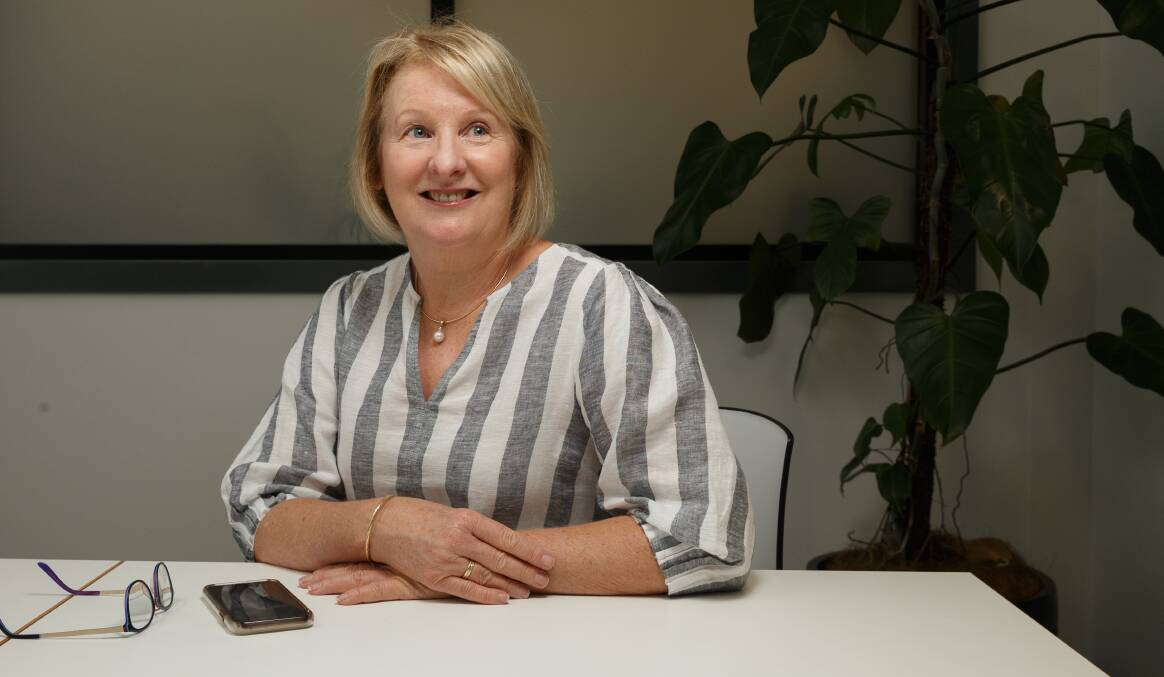
WHEN it comes to better outcomes in Australian classrooms, University of Newcastle Laureate Professor Jenny Gore has done her homework.
It's said the apple never falls far from the tree, but although her mother worked as a teacher before Professor Gore became one herself, she said serendipity played a big part in her academic journey which has revolutionised teacher professional development.
"I guess I've always felt that we can do more in teaching to get better outcomes, to me the most important things are to ensure that we're delivering quality to really try to do something to address inequities that have been enduring for way too long, and to support teachers," she said.
"Some people have tried to improve teaching by increasing regulations and standards and blaming teachers for not doing a good enough job, and what my commitment has always been is recognising the great qualities of teachers and important work of teaching in a way that can actually lead to powerful outcomes for teachers and students, rather than setting up what sometimes feels like barriers to good teaching."
Professor Gore has been awarded a Member of the Order of Australia (AM) in this year's Australia Day Honours.
She is the first female to be awarded the Laureate Professorship at the University of Newcastle, but also the second ever visiting professor at Oxford University.
The Quality Teaching Rounds program she conceived with her colleague Dr Julie Bowe has drastically improved professional development for teachers.
In 2018, the program received a $16.4 million Paul Ramsay Foundation grant to expand the program that makes a profound impact on the lives of students.
Last year, it got a further $5 million boost from the federal government which benefited more than 1000 beginner teachers.
Professor Gore said inequity in Australian classrooms has endured for decades, with Indigenous students, people from low socio-economic and rural communities often achieving poorer results.
"Australia actually when we look across the world, delivers reasonably high quality education, but we are one of the most inequitable nations in terms of the gap between our highest achieving and lowest achieving students, and that's something we need to do something about," she said.
"I've really arrived at a point in my research career where we have really robust evidence that we're making a positive difference for teachers and students and doing something about those enduring inequities.
"It's humbling and exciting to be doing this kind of work."
Growing up in Adelaide, the breadth of impact and influence her research has had is something she never could have imagined as a young girl.
In fact, her journey to academia started when she followed a boyfriend to Canada in the 1980's, studied a master's degree and returned to Australia with every intention to get back into teaching.
But a chance meeting at a conference saw her offered a job on the spot at the University of Queensland.
"I thought, 'well why not'?" Professor Gore said.
"That was really the start of an academic career, I still love teaching and as an academic you are still teaching ... but it just broadens the potential to have a wider impact through the academic work, the work with policy makers and with systems, teachers and school leaders."
Her work engages teachers in professional development which makes a difference for them and ultimately their students - in an age where many are overwhelmed with administrative burdens, staff shortages and issues with parent and student behaviour.
She believes all teachers are capable of greatness with the right supports and conditions.
"Rather than blame teachers for not doing a good enough job, or simply imploring them to do better ... our approach is to help teachers do better in ways that are really practical in terms of being able to immediately translate what they've learned through our professional development to their classroom practice," she said.
"It's really exciting that over the years we've been able to refine an approach that teachers really value and that is delivering the kind of results we were hoping for, but also that governments are seeking and parents can expect from schooling.
"When kids succeed at school their aspirations can change, their opportunities can change and other family and community members can imagine things for themselves that perhaps otherwise might not have been possible."
Professor Gore said the AM was a heartening honour, but one she shares with all of the people who she works with and who have contributed along the way.
"I work very hard and I have dedicated a big part of my career to this kind of work and for that to be recognised at this high level is humbling and makes it feel worthwhile," she said.
"It's really reinforcing and gives me even more drive to continue the work we're doing."
To read more about Newcastle's Australia Day Honours recipients, click here.







